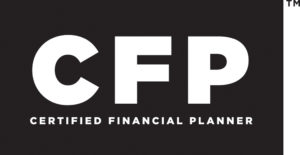I hope everyone is planning a New Year’s resolution. Even though according to U.S. News, about 80% of resolutions fail by the second week in February, it is still a good process to go through and you just may be that 20% that make it longer. For 2018, my resolution is to eat healthier, mainly by reducing added sugars (I may have the clinical definition of “addiction” to a warm mocha in the morning). The motivation will be driven by my desire to run a sub 2:45 marathon this April in Boston and the need to fuel my body with more nutrition than sugar. Since this is probably going to be my last marathon, I especially want to perform at my top level (if I start to talk about doing another one please try and talk me out of it). But enough about my New Year’s resolution, let’s talk about yours – and since you’re reading this you may be interested in a financial resolution.
The biggest financial goal is usually to save more money or to spend less money, which are basically the same goal, just stated in a different manner. According to a 2017 GOBankingRates survey, more than half of Americans (57%) have less than $1,000 in their savings accounts. Here are some tips to help you stay out of that 57%, accomplish your financial goal and hopefully become one of the 20% of resolution keepers.
- Set up a savings account at a separate bank without checks or a debit card so that in order to get money out of the account you have to physically go to the bank. Also set up a monthly automatic transfer from your usual checking account to this separate savings account to help build it up.
- Put all of your credit cards in a safety deposit box or at home in a safe so you are not tempted to use them on impulse buys.
- Have a spending buddy. Set a limit, and if you want to buy something over that limit you must call your spending buddy for approval. I do this with my wife and it eliminates half the purchases because I know what the answer will be, so I don’t even call.
- Use cash for all spending. Set a budget and pull the cash out for how much you will need. Once you’re out of cash you don’t get to go out to eat or to movies, so spend it wisely.
- Make sure that you are contributing to your employer’s retirement plan if they offer a match. Not taking advantage of this opportunity may be costing you thousands of dollars.
Another big resolution people make is to start planning for retirement (or even retire now!). I understand that this can be a big scary task, but a little preparation and planning can go a long way and proper planning can even increase your chance of success. So, if this is your resolution give us a call. The initial consultation is free and even if we aren’t a fit, we will at least get you pointed in the right direction. If you are like me and like to play with the numbers yourself, here is a link to a basic planning tool that can help get you started.





